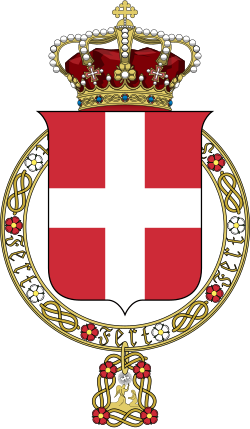Menabrea III government | |
|---|---|
| 12th Cabinet of Italy | |
 | |
| Date formed | 13 May 1869 |
| Date dissolved | 14 December 1869 |
| People and organisations | |
| Head of state | Victor Emmanuel II |
| Head of government | Luigi Federico Menabrea |
| Total no. of members | 9 |
| Member party | Historical Right |
| History | |
| Predecessor | Menabrea II Cabinet |
| Successor | Lanza Cabinet |
The Menabrea III government of Italy held office from 13 May 1869 until 14 December 1869, a total of 215 days, or 7 months and 1 days. [1]
